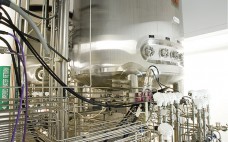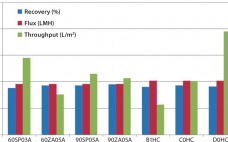India is becoming an increasingly attractive destination for outsourcing biotechnology services by global biopharmaceutical companies. As “Big Pharma” continues on its path of finding ways to lower costs for development and manufacturing of biopharmaceuticals, Indian contract development and manufacturing organizations (CDMOs) are being viewed as capable and beneficial service providers that possess the necessary technical expertise and regulatory-compliant facilities. According to its 11th annual report on biopharmaceutical manufacturing capacity and production, BioPlan Associates ranked India fourth in the world as…
Manufacturing Contract Services
Rapid Development and Scale-Up Through Strategic Partnership: Case Study of an Integrated Approach to Cell-Line and Process Development for Therapeutic Antibodies
Over the past decade, monoclonal antibodies have become mainstream therapeutics for treating a broad range of conditions from autoimmune disorders to cancer. Part of this evolution is increasing time and cost pressure on biopharmaceutical companies to bring new drugs to market 1, 2. Additionally, companies now routinely engineer and screen molecules for developability and manufacturability during discovery before selecting a final candidate molecule. The biosimilar development paradigm also demands significantly more bioanalytical analysis during initial cell-line and process development. Thus,…
Strategies to Mitigate Technology Transfer and Clinical Manufacturing Risks: Downstream Purification Case Studies
Since the early 1980s, biotechnology products have been a fast-growing sector. They now occupy a significant portion of biologic drugs approved by regulatory authorities around the world every year. Among the approved biologic drug products, as well as those still in clinical testing, many are manufactured by contract manufacturing organizations (CMOs). Sponsor companies often transfer their developed process and process knowledge to CMOs for manufacturing of materials for toxicology and clinical studies. Drug Product Development Figure 1 illustrates the usual…
Risk Management in Financing of Capital Expansions: How One CMO Grows with Its Customers
BioVectra Inc. is an eastern Canadian contract manufacturing organization (CMO) with expertise in both synthetic chemistry and biomanufacturing techniques. In recent years, it has obtained specialized knowledge in production of highly potent small molecules from fermentation and functionalized methoxypoly(ethylene glycol) products (mPEGs). The focus of BioVectra’s contract manufacturing business is the transfer and scale-up of processes for manufacturing its clients’ products under current good manufacturing practices (CGMPs) as appropriate for the clinical stage of each product. In the current environment,…
Begin By Thinking of Your Goal
The biopharmaceutical industry is experiencing a surge of collaborations among large and small companies seeking to develop new drug candidates. Often, such efforts have been a result of a merger or acquisition. But other factors also are pushing the rise in collaborations, including dwindling drug pipelines, increasing generics and biosimilars, rising costs of drug development, and changing regulations that are already complex. High costs of drug development in particular have created greater risks. That is especially true for small biotechnology…
Advocating for Advanced Therapies
My sense is that we’ve come a long way and that 2013 was actually a very good year — perhaps maybe even the best year ever for regenerative medicines and advanced therapies. Clearly the financial markets have allowed us to do more in terms of raising capital to fund projects in this space, and we are seeing a growing interest in the sector in the investor community. We’ve seen a number of major financing events over the course of the…
Single-Use, Continuous Processing of Primary Stem Cells
Many potentially therapeutic products involve the culture of stem cells. Their commercial success depends on the development of scalable good manufacturing practice (GMP) technologies that can both robustly and cost-effectively produce very large numbers of cells. Through many improvements and innovations in bioprocessing operations over the years, fed-batch suspension culture has remained the most common mode for large-scale biopharmaceutical manufacturing. However, some recent events suggest that may be changing (1,2). For the culture and expansion of stem cells, large-format adherent…
Enabling Technologies
Many technological advancements in recent years have enabled companies to shorten time to market, to better understand their manufacturing processes, and to characterize their products well. In BPI’s December 2013 issue (pages 47–50), I reported on the first half of an informal reader survey about those technologies, with commentary from some survey participants and others. This month concludes with my examination of analytical, formulation/fill–finish, and facilities technologies. Analytical Technologies After writing several installments of our new “BPI Lab” series this…
Outsourcing Facility Safety for Biomanufacturing
As the life-science industry increasingly outsources noncore functions, some companies are finding that managing the expanding web of safety and environmental requirements associated with various functions is, in turn, growing vastly more complex. As multiple third parties handle numerous noncore activities, the risk — and headaches — of monitoring them effectively is a growing challenge by any standard. At first glance, the lowest-risk solution for many organizations may seem to be managing associated safety programs with in-house personnel and programs.…
A Global Joint Venture Strategy for Biosimilars Development
In April 2013, biopharmaceutical company Pfenex (San Diego, CA) announced a joint venture with biologics manufacturer Stelis Biopharma, Inc. (“Stelis”), earlier known as Agila Biotech, (a wholly owned subsidiary of Strides Arcolab Limited (Bangalore, India) for the commercial development of six biosimilars. The companies will also leverage technology and global development expertise from GE Healthcare Life Sciences (Uppsala, Sweden) and Bio-XCell Malaysia (Nusajaya, Malaysia). Such international, multicompany collaboration strategies have become a growing trend in the highly competitive biosimilars industry.…




